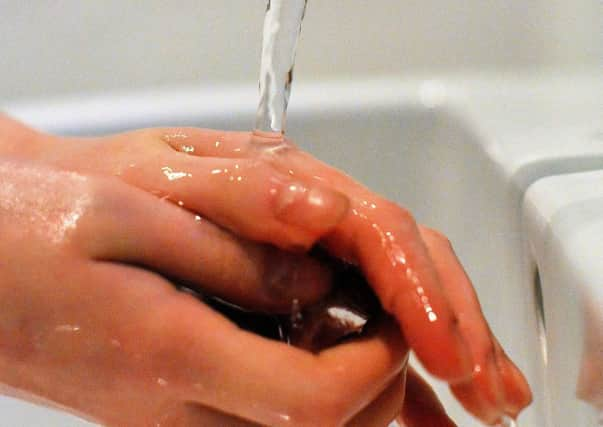Children need to be taught how to wash hands, watchdog warns
This article contains affiliate links. We may earn a small commission on items purchased through this article, but that does not affect our editorial judgement.


New guidance from the National Institute for Health and Care Excellence (Nice) says good hand-washing must be driven home to cut the risk of bugs and therefore slow down the use of antibiotics.
It says youngsters need to be told “when and how to wash and dry their hands”, while places such as care homes must also adopt strict hand-washing policies.
Advertisement
Hide AdAdvertisement
Hide AdThe guidance also calls for teenagers going to university to be taught how to look after themselves if they have a “self-limiting illness” such as cold or flu.
But the charity Meningitis Now warned that first-time students - who are a vulnerable group for contracting the killer bug - must stay alert because meningitis can easily be mistaken for cold or flu.
Nice believes that telling people how to look after themselves reduces the risk of spreading infection and cuts down patient demand for antibiotics.
Health systems across the world are currently trying to cut antibiotic use to slow down the rise of antimicrobial resistance. This is when antibiotics become less effective or are rendered useless because bugs have learned how to resist them.
Advertisement
Hide AdAdvertisement
Hide AdThe new Nice guidance says young people going to university should be given guidance on recognising illnesses that will get better on their own, as well as being signposted to pharmacies, the 111 phone line and the NHS Choices website.
On handwashing, it says posters should be put up around campus showing how to wash hands properly.
Similarly, in nurseries and schools, young children should be told how to wash and dry hands, “for example, after using the toilet, before eating meals or snacks and after being in close contact with people with colds or other infections”.
People should use liquid soap and tepid running water to wash their hands after using a bin.
Advertisement
Hide AdAdvertisement
Hide AdOther measures to cut the risk of falling ill include ensuring food and leftovers are stored in the fridge, cooked at the right temperature and properly heated through.
Professor Dame Sally Davies, England’s Chief Medical Officer said: “We need to address the growing problem of drug-resistant infections as the global medicine cabinet is becoming increasingly bare. Preventing infections in the first place is key and so is education on how to use antibiotics appropriately.
“This guidance provides important information on how we can keep these important medicines working.”
Rachel Robinson, from Meningitis Now, said good hand hygiene was needed to combat disease, but said “asking people to self-diagnose and take a view on the seriousness of their illness is a difficult area.
Advertisement
Hide AdAdvertisement
Hide Ad“Whilst meningitis is a relatively rare disease, its early symptoms, such as fever, headache or vomiting, can easily be mistaken for flu or a viral infection and misdiagnosed, even by medical professionals.
“People with meningitis can get a lot worse very quickly and we know rapid diagnosis and treatment significantly improve outcomes. We wouldn’t want people to think they should try to manage this themselves.”